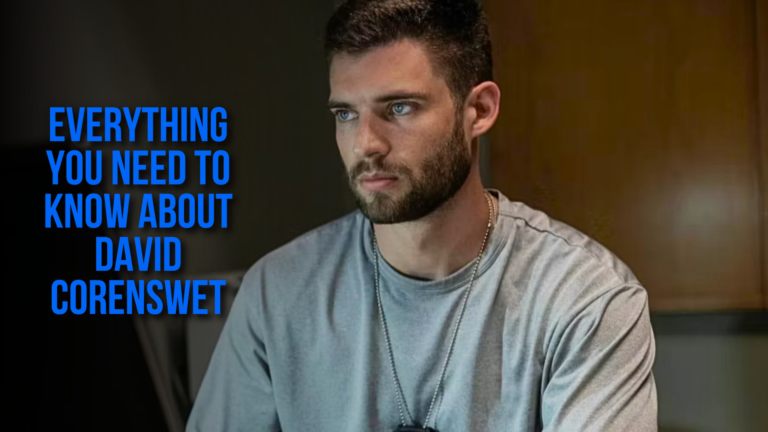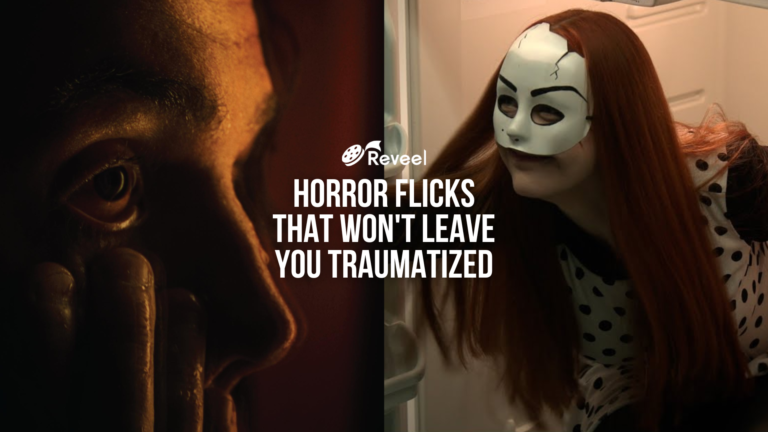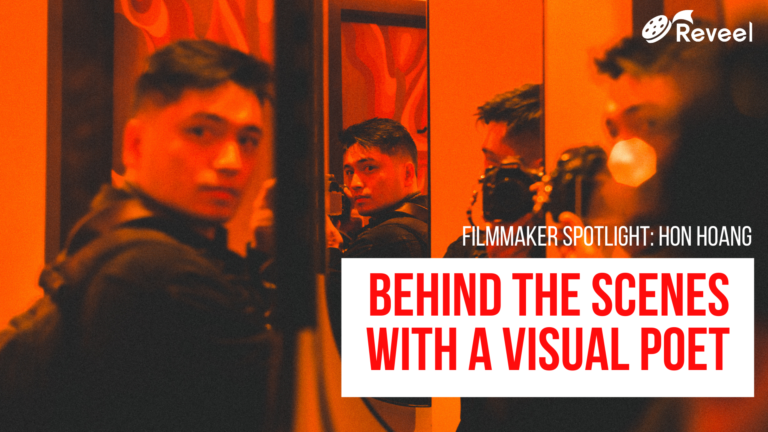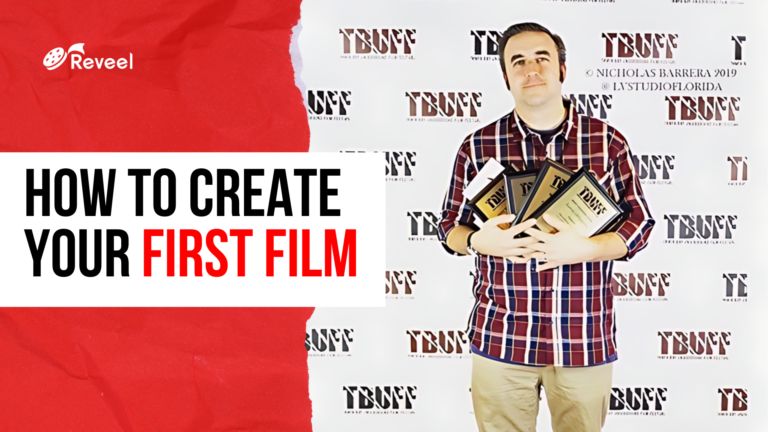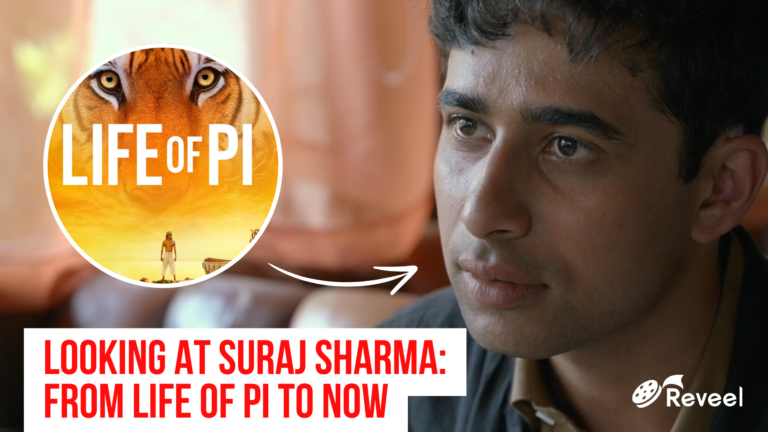According to the Addiction Center, 21 million Americans have at least 1 addiction and only 10% of them receive treatment. Many of these Americans are parents that have to battle their addictions while also taking care of a family. Director Kylie Eaton touches on this issue with her short film DISPEL. The fantasy short film has won multiple awards at film festivals and has resonated with many viewers who can relate to the main story. We have interviewed Kylie Eaton to get a better understanding of her creative process and how she managed to get Gina Torres (Firefly, Suits, Serenity) involved in the project.
The following interview has been edited for clarity and length.
1. In your own words, can you tell us what DISPEL is about?
Kylie Eaton: When Lizzie learns her older brother, Mark, will be moving out soon, she realizes that she will be left alone with her monster of a mother. Through her love of the (fictional) fantasy series Celeste Skygoode, Lizzie is able to process what is happening to her mother and attempts to help ‘save’ her from the monster who has overtaken her.
It’s a grounded yet idealized look at the effects of addiction through a fantasy lens.
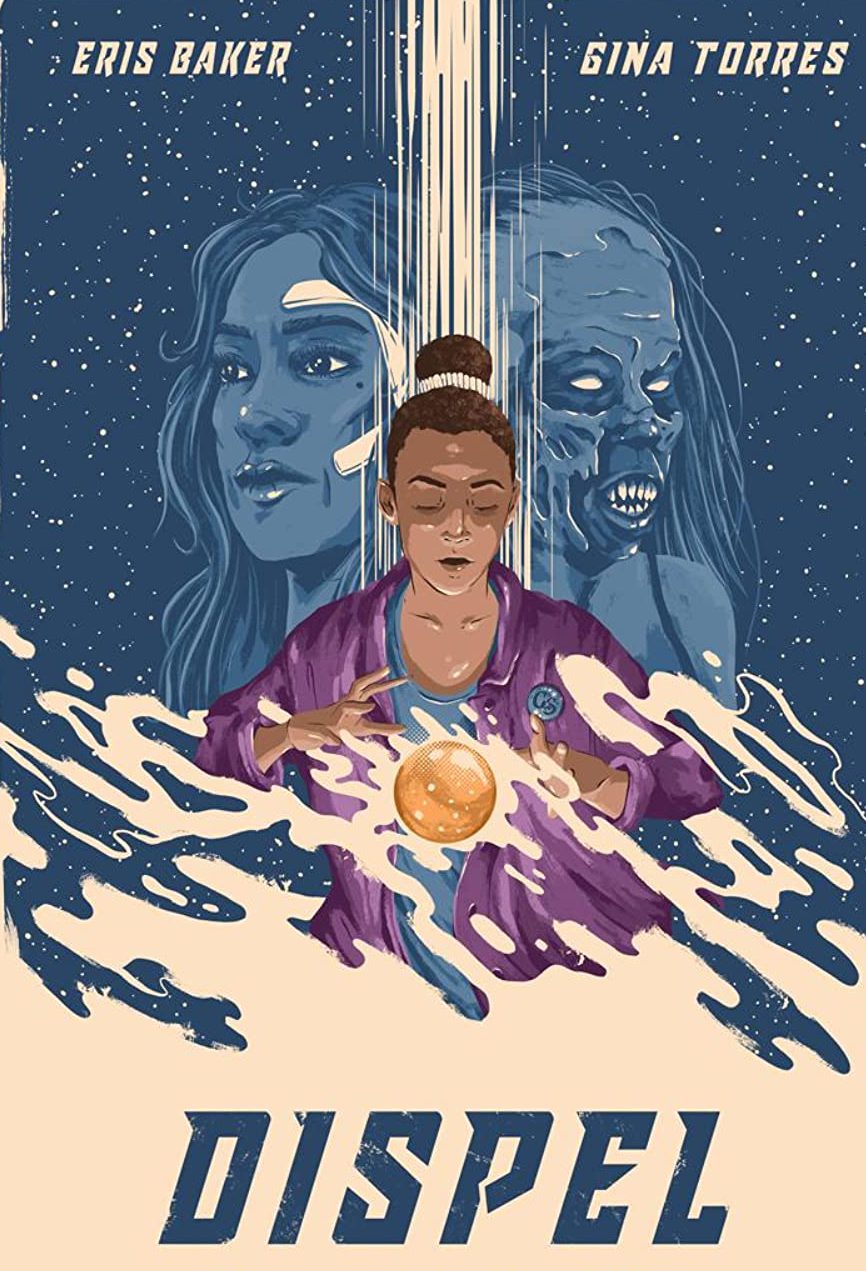
DISPEL’s Short Film Poster
2. How did you come up with the idea? What was the inspiration behind the film?
Kylie Eaton: When thinking back over the most significant moments of my life, my older siblings — 11 and 8 years older respectively — moving out of the house and leaving me as the only child was a huge change for me. My siblings were my protectors growing up. They were my substitute parents who would distract me with movies and make-believe when things at home got tough. I wanted to explore that transition while giving Lizzie a happier ending than I had.
As mentioned above, film, TV, and books were my escape as a child. In particular, sci-fi and fantasy stories gave me a way to process the world around me. It was when I combined those two ideas that DISPEL was born.
The power of love has the ability to incite change.
3. The story seemed to mirror the experiences of children who watch their parents battle with their demons. What did you want the audience to take away from the film and why did you feel that this story needed to be told?
Kylie Eaton: Child abuse can take many forms — physical, emotional, sexual — and it’s still one of the most difficult things to talk about. It’s an uncomfortable topic, and certainly not one that seems palatable in a “kids” film. But I think that it’s an incredibly important topic to talk about. For me, telling this story through Lizzie’s perspective of seeing her mom as a monster from a TV show, helped to broach the subject.
That said, DISPEL is a fictionalized and idealized look at the situation of a child dealing with a parent who suffers from addiction or mental illness. No, it’s not the child’s responsibility to ‘cure’ their parent, but instead, DISPEL is a metaphor for how the power of love has the ability to incite change.
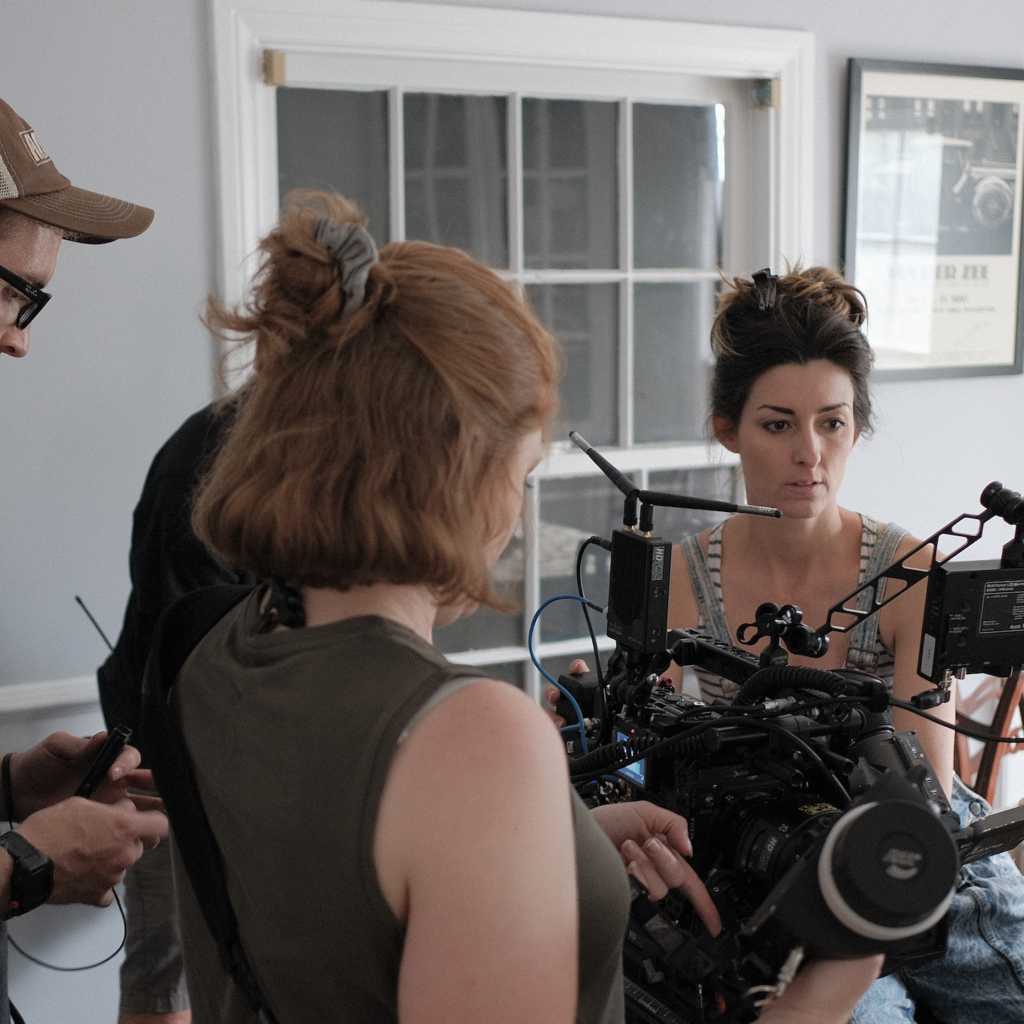
The DISPEL Crew on set
4. The film looked beautiful. How did you approach the cinematography and art direction on DISPEL?
Kylie Eaton: A big shout out to my team — cinematographer Natalie Kingston, production designer Maren Jensen, and costume designer Bree Perry — who helped bring the world of DISPEL to life. Additionally, my producer Julia Kennelly made magic happen without which the visuals could never have translated as well on screen.
As for my approach, I pulled a lot of references from the 80s/90s genre of TV and film and worked with Natalie to create a look that was reminiscent of that era with a modern twist. My favorite bit is the clip of the Celeste Skygoode TV show. For production purposes, we captured that digitally, but we ran it through an old VHS player. So that look isn’t any fancy visual effect, but real 90’s tape!
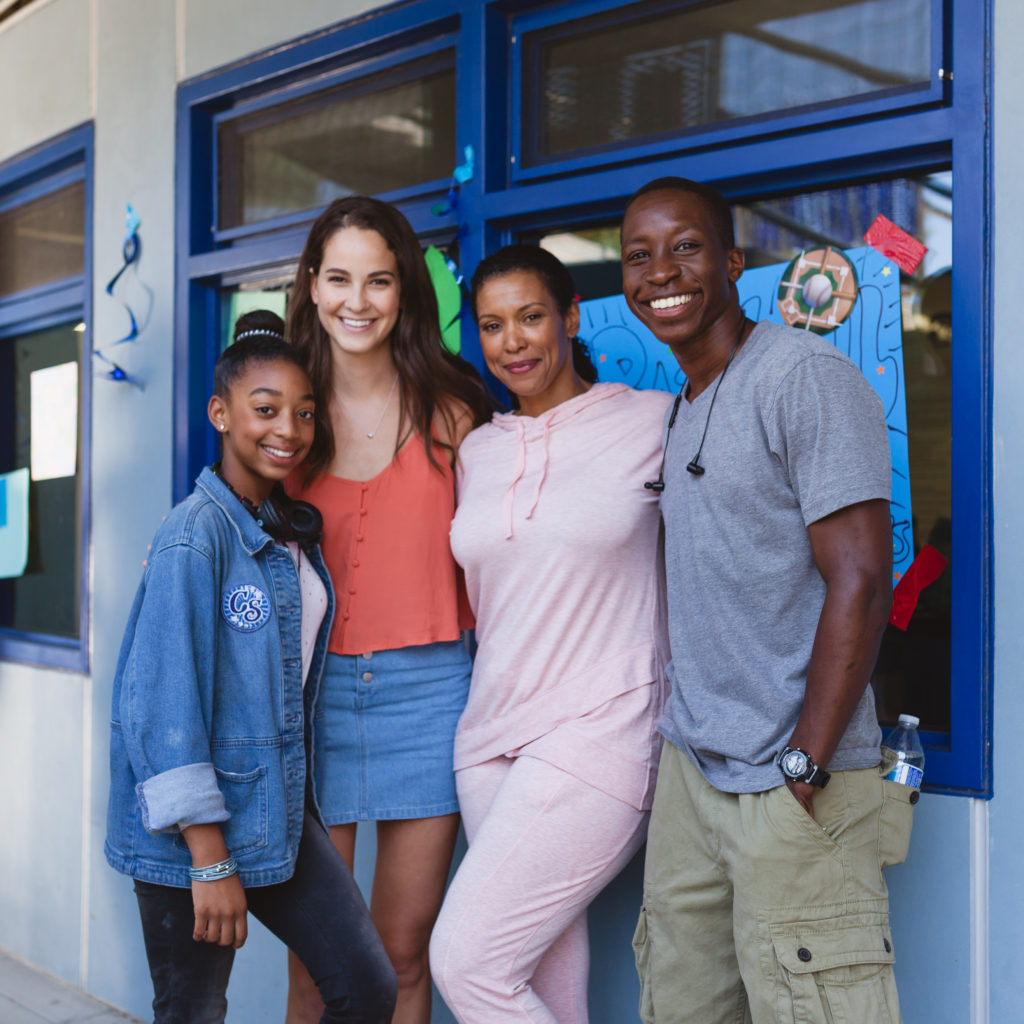
The Cast of DISPEL
5. The cast had a lot of talent and amazing chemistry with each other. What was the process like for casting the main leads along with the iconic Gina Torres?
Kylie Eaton: Firstly, I wrote the part of Celeste Skygoode with Gina Torres in mind, never thinking I would actually get to work with her! I’ve been a fan of hers for decades, and have always wanted to see her in a superhero role. I was honored that she agreed to play the part of Celeste. She brings such gravitas to the project, and really is the kindest person to work with. It was truly a dream come true. I couldn’t have done it without our fantastic casting directors at Treadwell Kelly.
For the role of Lizzie, I had seen Eris Baker on This Is Us and knew she would make an amazing Lizzie. After meeting with her, I could tell she was really committed to the part and a really smart and intuitive young actress. For the character of Mark, Omete Anassi blew me away in his audition. The chemistry that the two have on screen as brother and sister speaks both to their talent as actors as much as their openness and generosity as human beings. From the first read-through with the two of them, they instantly had that sibling connection. I couldn’t have asked for a better cast — they made my job much easier!
6. Film production is largely about teamwork. What are some of the biggest challenges that you and the crew of DISPEL had to overcome?
Kylie Eaton: Every film that gets made is a small miracle in itself. DISPEL came with plenty of challenges, from losing one of our locations just days before shooting, to an ambitious VFX shot list. Add in the heat of Los Angeles in the summer, and some days it was a challenge just to be in a house with a full crew. But the thing about filmmaking is that if you have the right people by your side, everyone will come together to make sure that the film gets made.
There was a lot of passion from all of our department heads. A special shout out to our Special Effects Makeup Lead Chelsea Hernandez, and our actress Lee Sherman, who spent eight hours getting our monster screen ready. I was determined to have a practical monster, reminiscent of what you would find in an old episode of Star Trek or Doctor Who, and Chelsea and Lee together created something straight out of my nightmares!
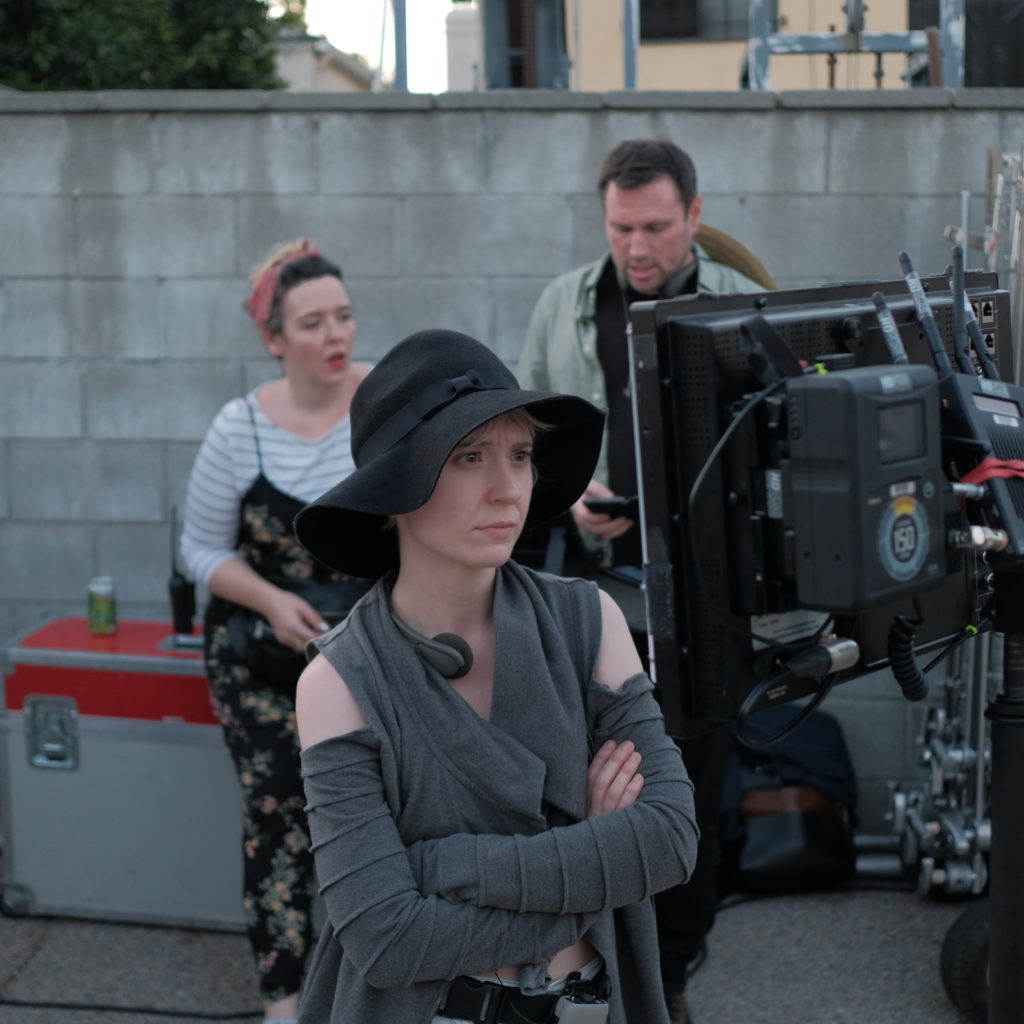
Kylie Eaton on the set of DISPEL
7. Being a director can require wearing many hats and having many responsibilities. What was your experience as the director of DISPEL? What were some takeaways from working on the project?
Kylie Eaton: The best part about directing for me is the chance to learn from each project and take those lessons with you into your next film. On DISPEL, I had the chance to deepen my knowledge of working with actors as well as really dig into the pre-production process. It was the biggest crew I had worked with to that point, and learning to effectively and efficiently manage communication with every department was definitely a learning curve, and an experience I’m grateful for.
8. What drew you to the film industry and to specifically become a director?
Kylie Eaton: Movies were a huge part of my childhood. They were both an escape and a means of connecting with my siblings. I grew up at a great time for genre films. My older brother got to see the original Star Wars in theaters — I got to see the re-release in 97. Spielberg’s films, Tim Burton, The Lord of the Rings trilogy, etc…
All of these movies reflected what I imagined when I read books and drew me to film. It wasn’t until later that I learned that’s the job of a director — to read a script and dream up what it should look, sound, and feel like (and then do the hard work to make that happen). Specifically, when DVDs started to include bonus footage and I got to see the BTS of a film set — seeing the director in action made me want to work towards that job.
My favorite thing about shorts is how sometimes I can still be thinking about a 10-minute film years and years after I saw it. The length doesn’t matter when the filmmaking is good – those stories will stay with you forever.
9. Short films have become very popular in recent years. Why do you think short films are important for filmmakers to create and why are they enjoyable for audiences to watch?
Kylie Eaton: A short film is like a calling card for a director, and if done right, it can express who they are as a storyteller, their genre, style, and tone. For myself, I want to direct big-budget action/sci-fi/fantasy films one day. Obviously, I can’t make one of those on my own, but I can create a small taste of that in my short films to give a glimpse of what I could do on a larger scale film.
Shorts are important in opening doors and breaking down boundaries in film. For a long time — and up until today — film and directing specifically has been the purview of white men from an economically privileged background. It’s an expensive career to get into and money has been a huge gatekeeper (among others) in the industry. With the affordability of cameras and editing software, the democratization of film has opened doors to more diverse and unique voices, something we desperately need in this business.
In terms of watching short films, I don’t think of shorts as just truncated versions of feature films — they are their own medium. Just like short stories and novels. Sometimes I want to read something that will take a few days and take me on a long journey, while other times I want to have the full experience of a story in a short amount of time. My favorite thing about shorts is how sometimes I can still be thinking about a 10-minute film years and years after I saw it. The length doesn’t matter when the filmmaking is good – those stories will stay with you forever.
DISPEL is about young Lizzie who must battle the monster that has possessed her mother, using the wisdom of her favorite TV fantasy show, “Celeste Skygoode.” Watch DISPEL for free on Reveel.
All-Time Popular Blogs
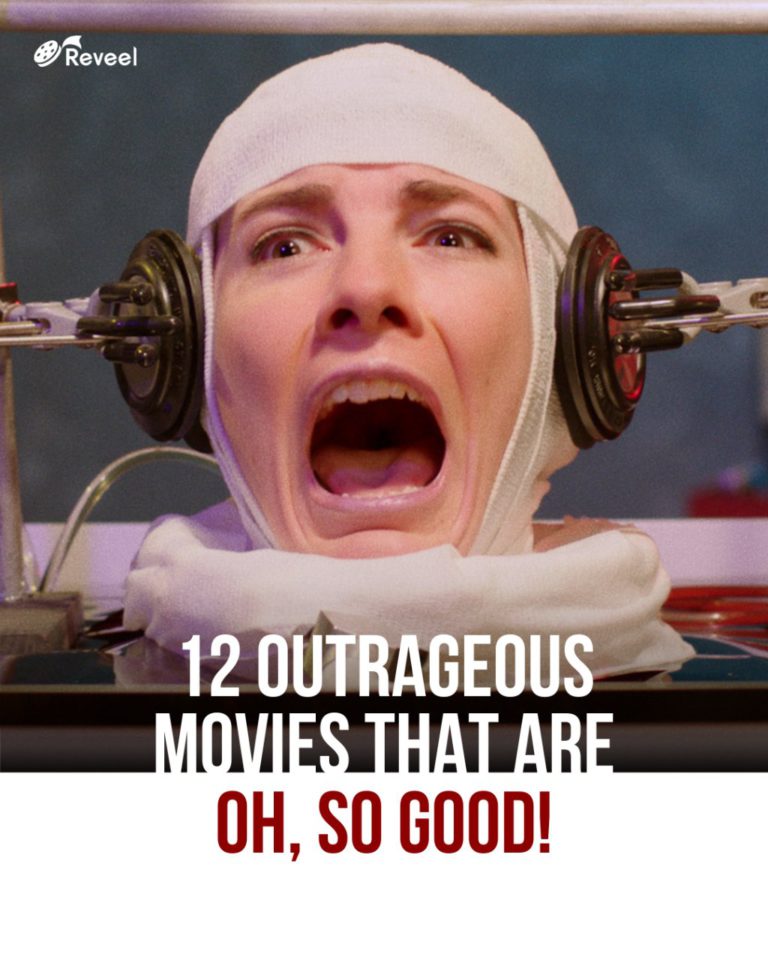
12 Horror Movies So Ridiculous – Ridiculously Good
We all know the allure of a good guilty pleasure flick — movies so ludicrous and outlandishly executed that we can’t help but be bowled over by the audacity. Welcome...
Read More
Best Free Filipino Movies You Can Watch Right Now
“There’s always a Filipino somewhere” is a well-known fact, and it’s true even in streaming platforms. Of course we have some right here in Reveel. From the adrenaline-infused streets of...
Read More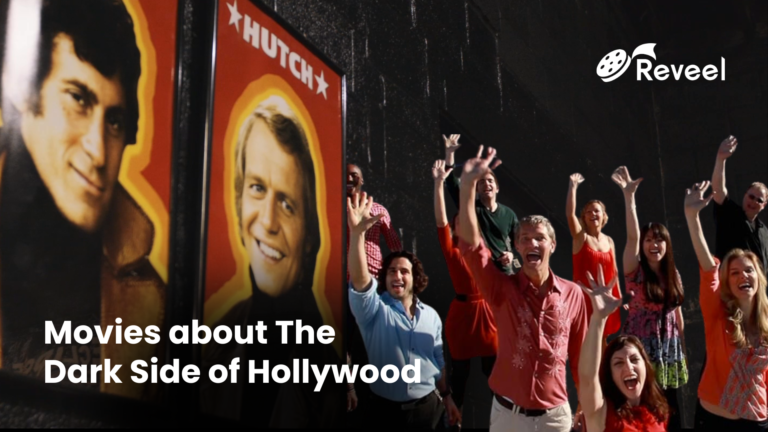
Movies about The Dark Side of Hollywood and Fame
The darker side of Hollywood—the side rife with scandal, exploitation, and the unyielding pressure to remain in vogue—is a tale as old as cinema itself. Yet, these stories never fail...
Read More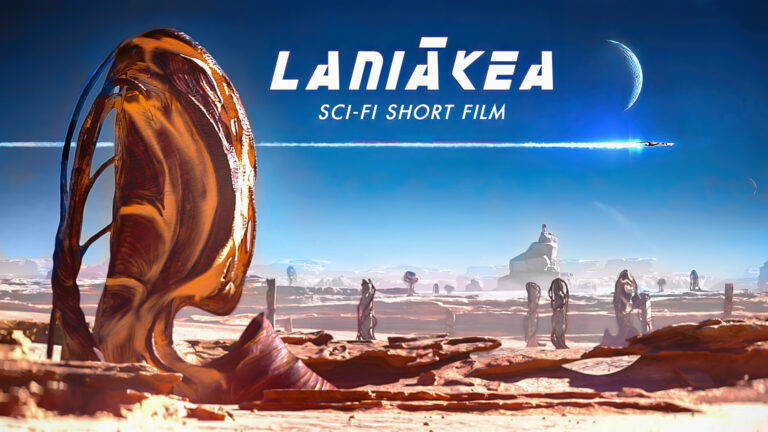
Reveel Interviews Dima Taran: The Filmmaker Behind The Animated Short ‘Laniakea’
What if we are alone in the universe? This question is at the core of the short film Laniakea. Originally created as a college project by Dima Taran, the film...
Read More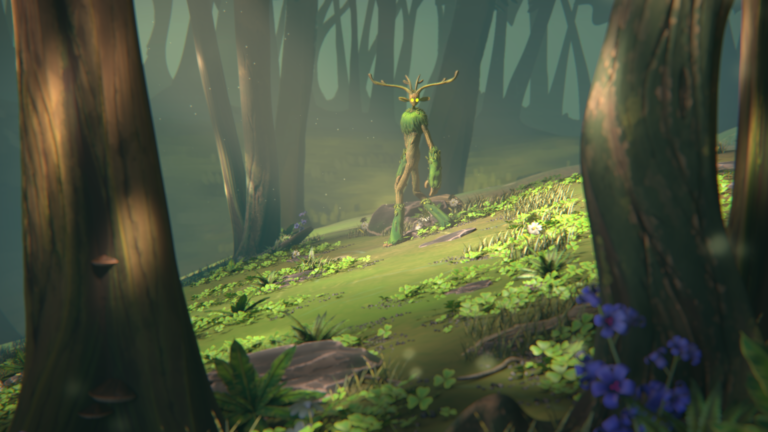
5 Best Animated Short Films To Watch For Free On Reveel
Sometimes the best stories aren’t the longest, they are the shortest. Short films have perfected the art of telling a captivating story in just a few minutes and animated shorts...
Read More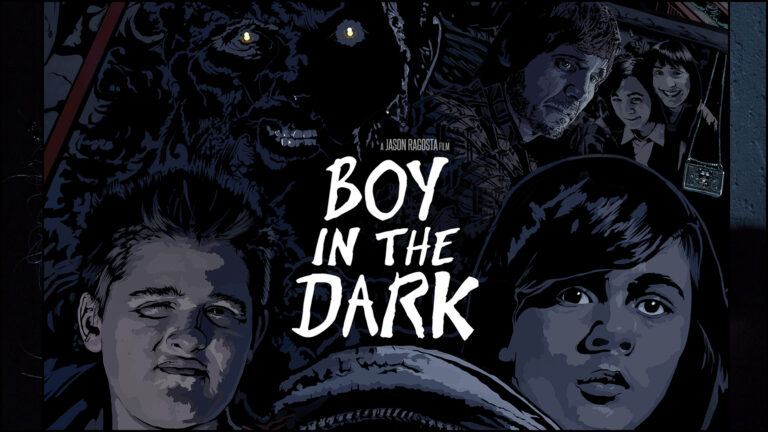
Reveel Interviews Jason Ragosta: The Filmmaker Behind The Short ‘Boy In The Dark’
Most, if not all, children had night terrors growing up. Some would hide under the covers. Others would yell for their parents. Kid-version Jason Ragosta, screenwriter and director, decided to...
Read More
